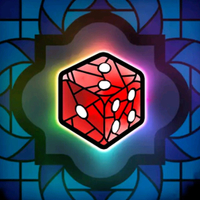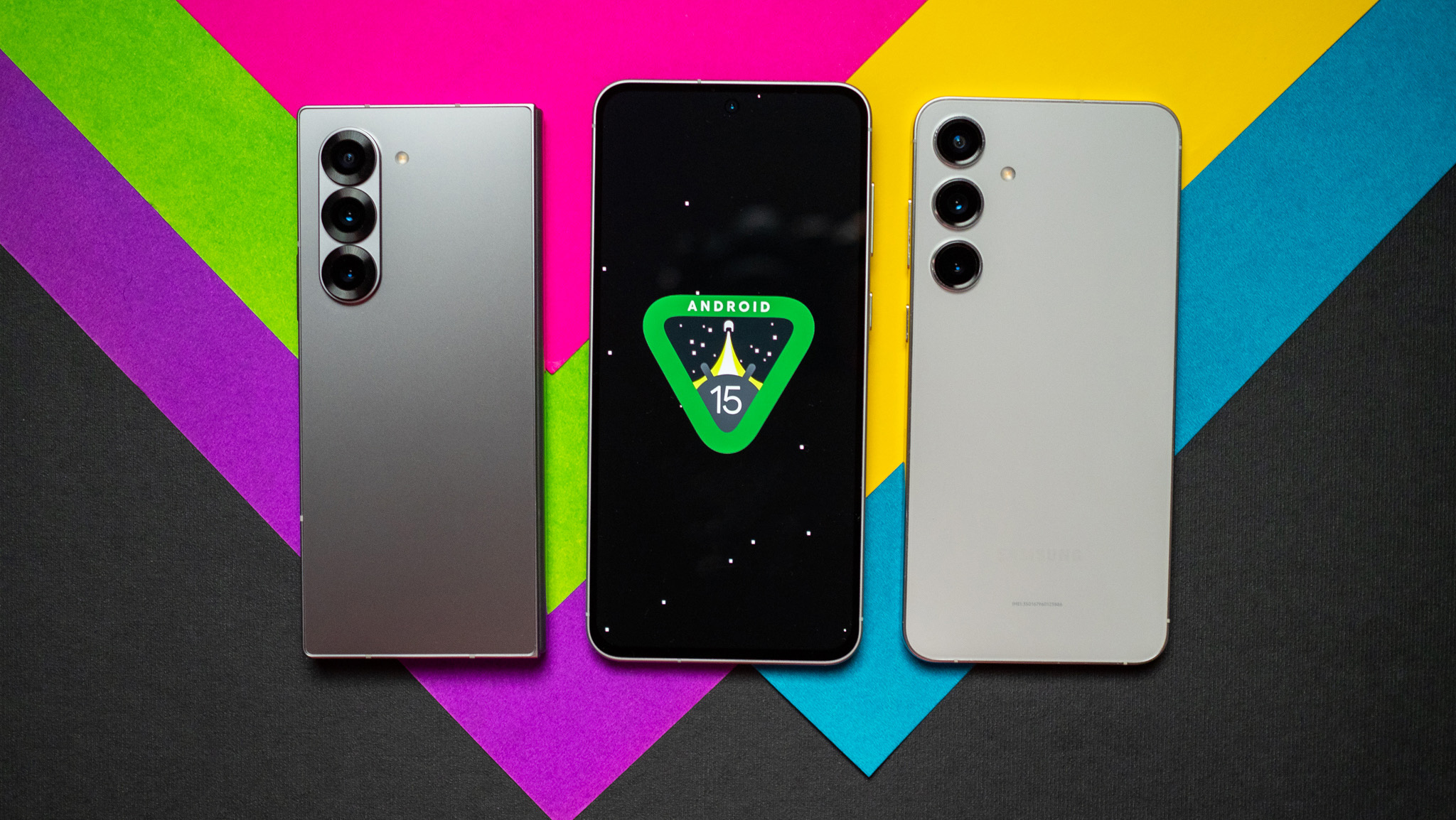Creating stained glass displays fit for the heavens in Sagrada for Android
A rare example of a board game that excellently translates to the mobile platform.
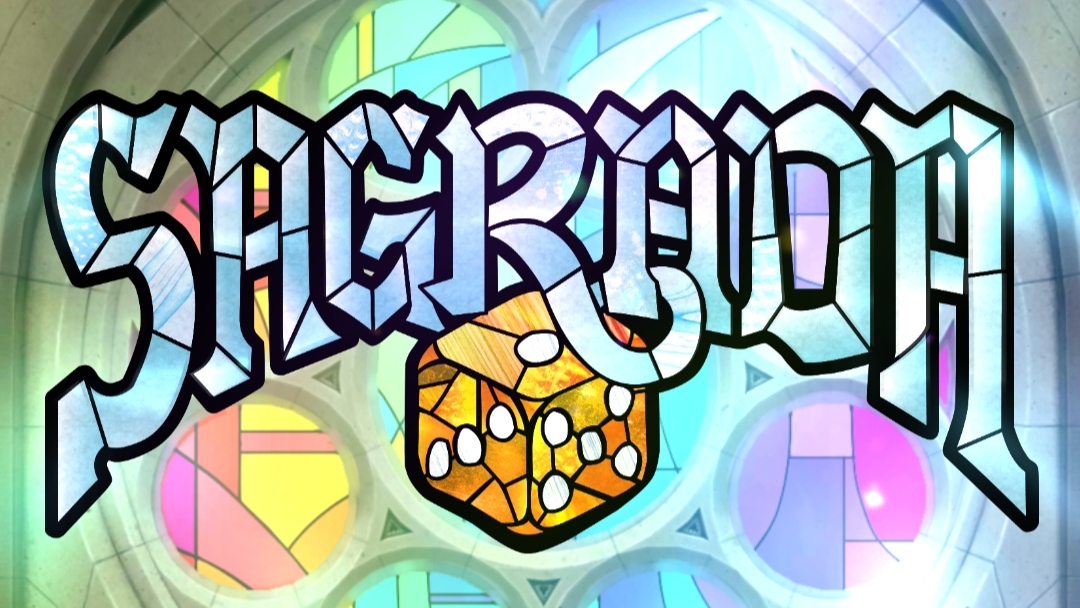
The board gaming industry has seen a massive resurgence in the past decade, making it no surprise that more and more board games are being created for mobile devices. The trouble is, not all existing board games can gracefully make the leap to the small screen. Many are plagued by janky AI, bugs, and poorly designed, cramped interfaces.
Sagrada, however, is a notable exception. Through its satisfying gameplay, gorgeous design, and well-explained tutorials, Sagrada plants its flag as an awesome mobile board game that adults and older children can all enjoy.
We've already got a running list of some of the best board games for Android, but you can bet we've got a new addition on our hands with Sagrada.
Inspired by the Sagrada Familia cathedral in Barcelona, Sagrada challenges its players to craft beautiful stained glass windows, awarding points for meeting specific criteria with your completed window.
Brightly colored dice represent window panes, which all players take turns drafting from a shared pool over the course of 10 rounds. At the end of the tenth round, the winning player is, of course, whoever manages to wrack up the highest number of points.
The challenge and fun of Sagrada come from the nuanced rules that govern where your colored and numbered dice can be placed on your board.
The challenge and fun of Sagrada come from the nuanced rules that govern where your colored and numbered dice can be placed on your individual board. Each board is set up as a grid, wherein a handful of cells have preset colors or number values.
For example, your 5x4 board might have two blue cells, one yellow, and the numbers three, two, and five. This means that your blue cells can only accept blue die (but they can be any numerical value) and your three cell can only accept a three die (which can be any of the five colors).
Be an expert in 5 minutes
Get the latest news from Android Central, your trusted companion in the world of Android
That doesn’t sound so hard, does it? But get this — no color or number can share a side with another die of the same color/number. They can, however, share a corner with another die of the same color/number, meaning each match ultimately plays out like a competitive puzzle, with each player gunning for dice from a shared pool that will most benefit their own board state.
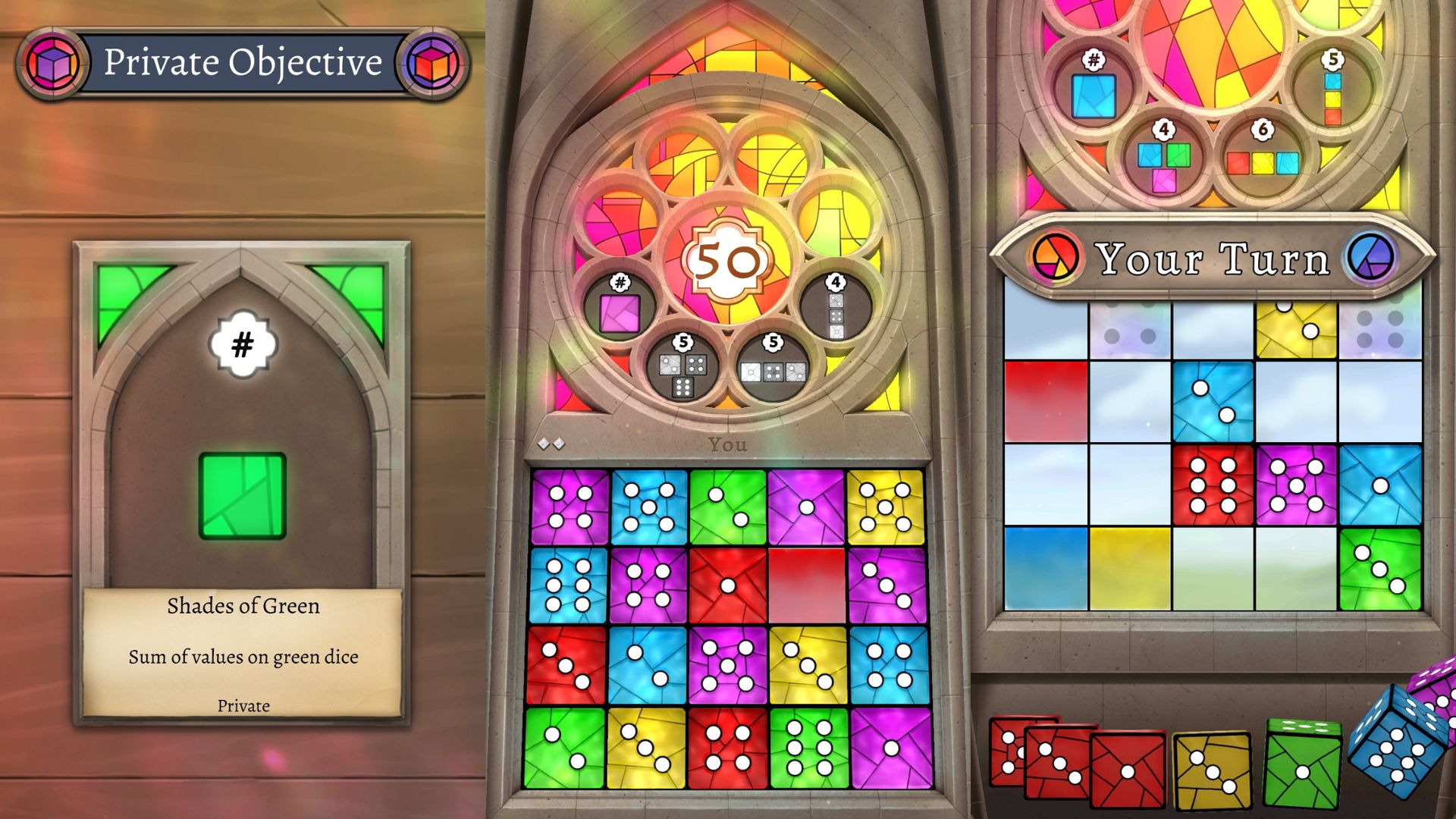
At the start of the round, player one rolls seven dice of mixed colors, and the numbers they land on cannot be changed (unless you have access to a sneaky special ability in the form of a tool card).
Each player drafts two dice from the pool per round, with the turn order rotating to keep dice selection fair. And yes, that does leave one unused die at the end of each round. These unused die go into a reserve pool that you can occasionally gain access to using tool cards.
At the end of the tenth round, you are awarded points based on a personal objective and three public objectives. A personal objective might be as simple as, “gain X points for each number on green die placed,” while public objectives tend to be a little more complex, like “gain four points for each column with no repeated numerical values.”
It might sound a little complex at first, but the in-game tutorials give players a solid foundation before tossing you into more heated games. Sagrada also has a ton of replay value, as objectives and available tool cards change every match.
You can never get too complacent without risking stupid mistakes that can ruin your window and land you squarely in last place. And make no mistake, you can end a match with unfilled panes if you play shoddily enough.
Most of the issues I and other players have encountered have their roots in the game’s online mode.
For all its pros, it must be said that Sagrada isn’t without its cons. While it’s great that Dire Wolf Digital tried to enable online play, most of the issues I and other players have encountered have their roots in the game’s online modes.
First of all, in my experience, online play is only possible if you have other friends to coordinate games with. The few times I looked for an open lobby, there wasn’t a single one up and running. But assuming you and a few friends all have Sagrada, you can make private rooms and face off against each other to your heart's content.
Unfortunately, many players have reported that online matches have a tendency to freeze, suddenly restart and set everybody back to square one, and replace players with AI the second they lose connection.
The bigger problem with that last point is that if, for example, a player goes to answer a text while playing with their friends, Sagrada interprets this as a lost connection and immediately boots them out of the game. It would be nice if the developers could add in a one or two-minute grace period to allow players to rejoin before it replaces them.
This error isn’t entirely unique either, with other players reporting that they’ve lost progress during daily challenges if they minimize the game and then try to return later. This isn’t the case with campaign mode, so it seems strange that daily challenges are so prone to losing player progress.
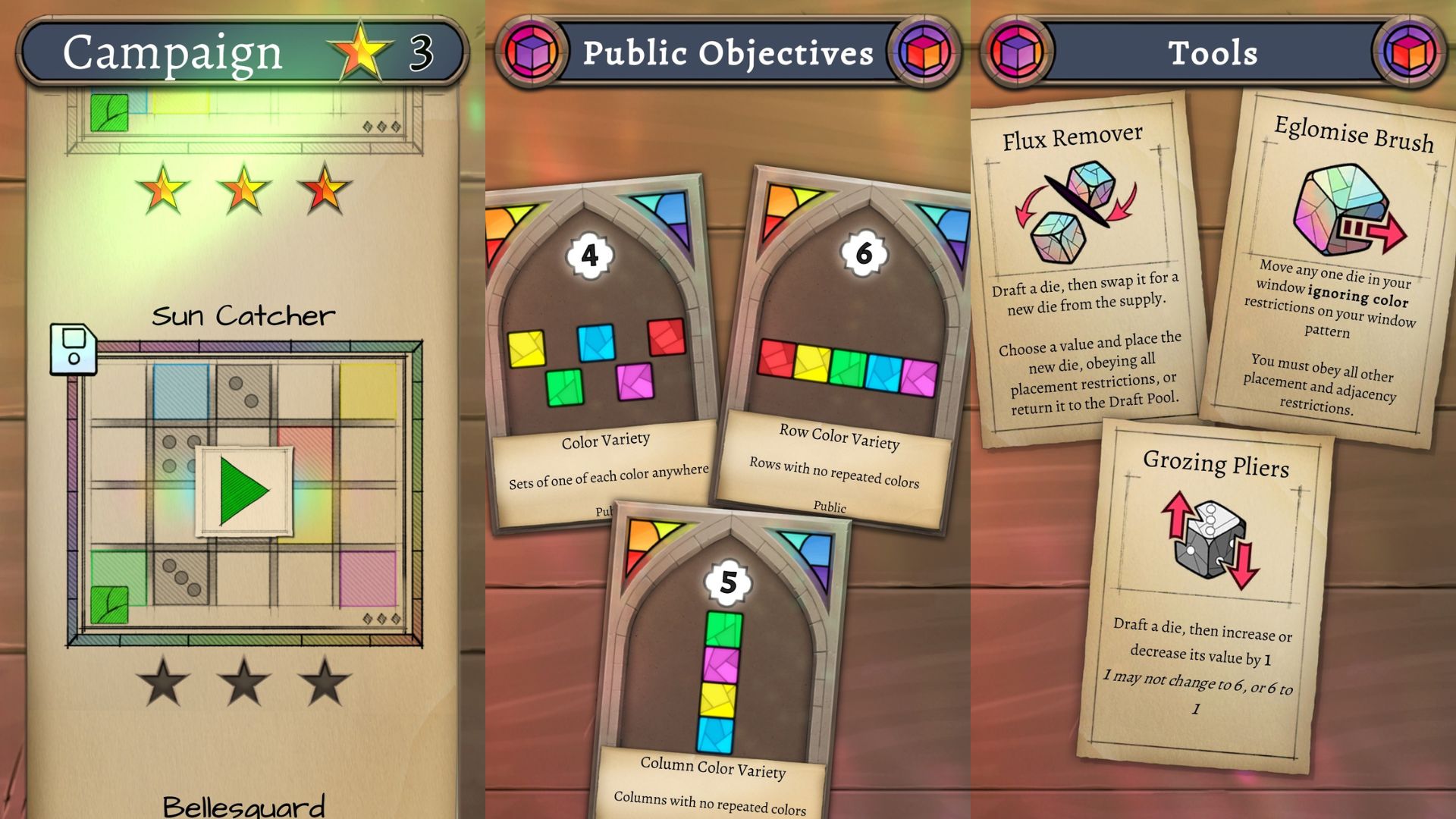
Fortunately, online play is just one option of many. Sagrada also has a local pass-and-play mode, along with Campaign, Vs. AI, and Daily Challenge single-player modes. Personally, I’ve found that Sagrada (on mobile) is a better single-player experience than a multiplayer one.
The quality of the AI players varies a bit, but most of my own games have ended with narrow score differences and I’ve lost my fair share of solo matches. One of the bigger draws of single-player matches for me is that they’re just short enough; I would say that a single match usually takes me 10-15 minutes.
Sagrada is a premium mobile board game at $6.99, without ads or in-app purchases, but you can snag it for free if you’ve got Play Pass. I would say that this is easily one of the better mobile board games available in the Play Store right now and I would definitely recommend it to other board game enthusiasts out there.
Sagrada
Fun and beautiful, Sagrada is an excellent mobile board game fit for the whole family.
Buy from: Google Play Store

A lifelong gamer, Mogan has had a controller in hand since the PlayStation 1 ruled the world and Neopets seemed eternal. She loves to play new and old games alike, especially if it's something weird and charming. Puzzlers, JRPGs, adventure, and rhythm games are her favorites.
